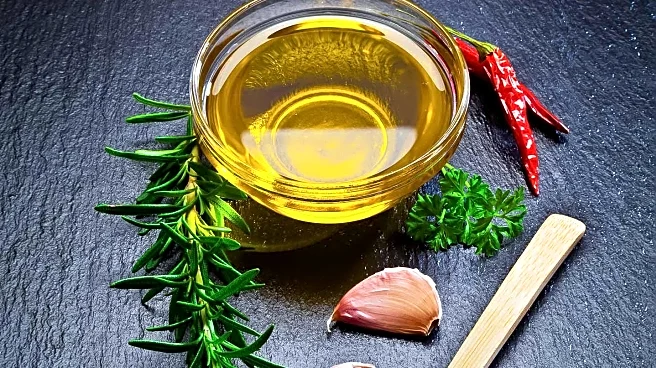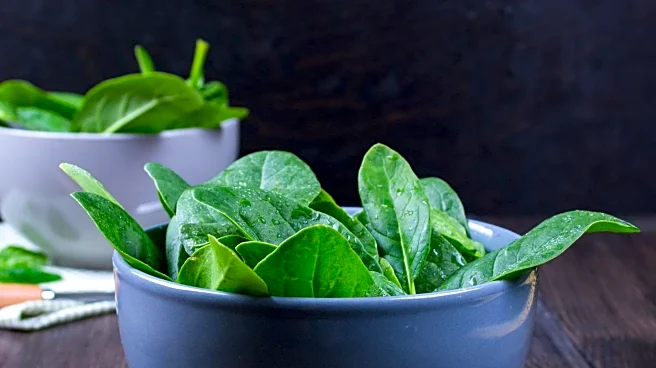What's Happening?
Recent studies have shown that marinating meat before grilling can significantly reduce the formation of carcinogenic compounds, which are typically produced when meat is cooked at high temperatures. These compounds, known as heterocyclic amines and polycyclic aromatic hydrocarbons, can increase cancer risk by damaging DNA over time. Marinades containing ingredients like vinegar, citrus, wine, yogurt, and antioxidant-rich herbs such as garlic, rosemary, and thyme are particularly effective in reducing these harmful chemicals by over 90%. Experts also recommend pairing grilled meats with fruits and vegetables to further counteract the potential health risks associated with these compounds.
Why It's Important?
The findings are significant as they offer a practical solution to a common health concern associated with grilling meat, a popular cooking method in the U.S. By adopting marination techniques, individuals can enjoy grilled foods while minimizing cancer risks. This research could influence public health recommendations and encourage consumers to incorporate healthier cooking practices. The food industry might also see a shift towards promoting marinades and antioxidant-rich ingredients, potentially impacting market trends and consumer behavior.
What's Next?
As awareness of the health benefits of marinating spreads, it is likely that more consumers will adopt these practices, leading to increased demand for marinade products and recipes. Health organizations may update guidelines to include marination as a recommended practice for reducing cancer risk. Additionally, further research could explore the specific mechanisms by which marinades reduce carcinogen formation, potentially leading to new innovations in food safety and preparation.
Beyond the Headlines
The cultural significance of grilling in American society means that these findings could have broader implications for lifestyle and dietary habits. Encouraging healthier grilling practices could contribute to a reduction in cancer rates over time, highlighting the importance of integrating scientific research into everyday cooking methods. This development also underscores the role of antioxidants in diet and their potential in preventing various health issues.











